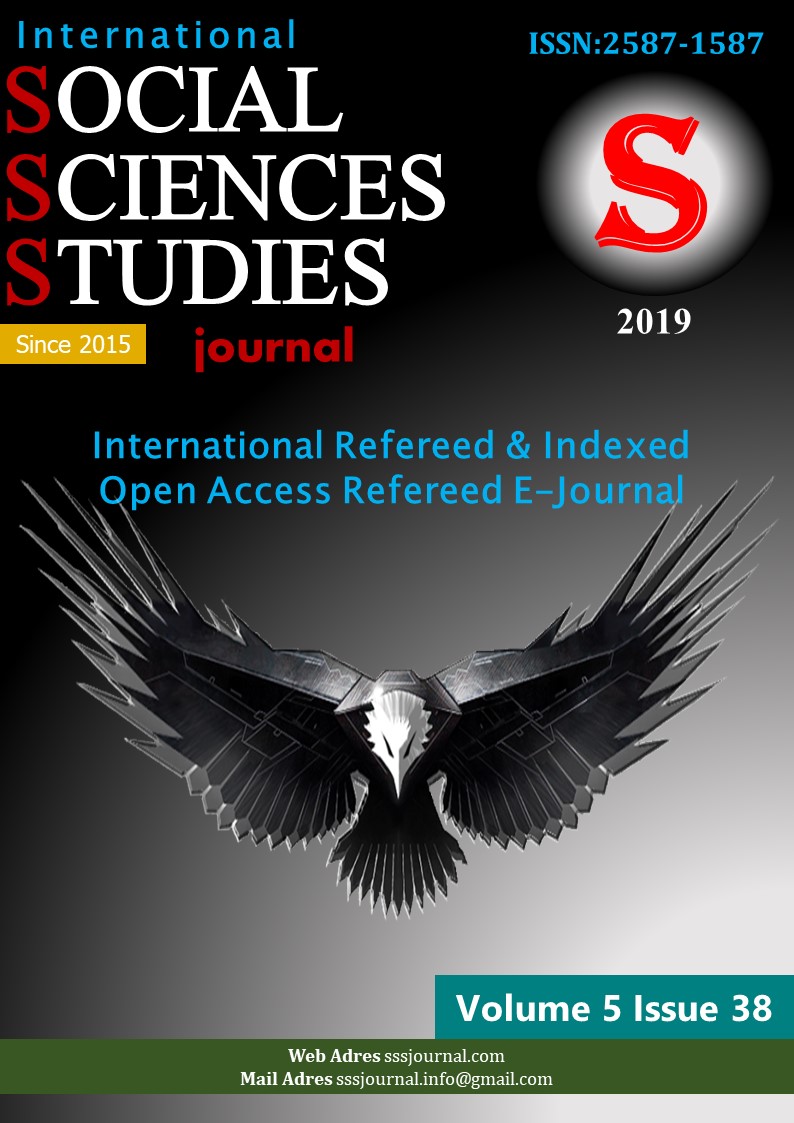Author :
Abstract
Bu araştırma, Borsa İstanbul (BIST)’da yer alan Türkiye İmalat Sanayi firmalarının Uluslararası Muhasebe Standartları (UMS)’lerin açıklama gerekliliklerine uyum düzeyini ve firma faktörlerinin bu uyum düzeyine etkisini incelemektedir. İncelenen faktörler: firma büyüklüğü, kârlılık, kaldıraç, denetçi türü ve firma yaşıdır. Çalışma, örneklenen firmaların yıllık rapor ve hesaplarından çıkarılmış ve betimleyici istatistikler ve lineer regresyon tekniği kullanılarak iki değişken açısından analiz edilmiş ikincil verilerin kullanılmasıyla gerçekleştirilmiştir. Uyumluluk seviyeleri %53 ile %97 arasında değişmekte olup %79,5 ortalamaya sahiptir. Uyumluluk seviyelerinin firma büyüklüğü ile olumlu bir şekilde ilişkili olduğu ve firma kârlılığı, kaldıraç seviyeleri, firma yaşı ve denetleyici türü ile ilgisiz olduğu görülmüştür.
Keywords
Abstract
This research examines the extent of level compliance of Turkey’s manufacturing industry companies listed in Borsa İstanbul (BIST) with International Accounting Standards (IASs) disclosure requirements, and the effect firm characteristics have on the level of compliance. The factors examined are: firm’s size, profitability, leverage, type of auditor, and firm’s age. The study done through the use of secondary data which were extracted from the annual report and accounts of the sampled firms and analyzed using the descriptive statistics and linear regression technique for two variables. Compliance levels range from 53% to 97%, with an average of 79.5%. Compliance levels are found to be positively related to company size, and unrelated to firm’s profitability, leverage levels , firm’s age and type auditors.
Keywords
- Agyei-mensah, B. K. (2013). Adoption of International Financial Reporting Standards ( IFRS ) in Ghana
- Agyei-mensah, B. K. (2013). Adoption of International Financial Reporting Standards ( IFRS ) in Ghanaand the Quality of Financial Statement Disclosures. International Journal of Accounting and Financial Reporting, 3(2), 269–286.
- Al-shammari, B., Brown, P., & Tarca, A. (2008). An investigation of compliance with internationalaccounting standards by listed companies in the Gulf Co-Operation Council member states. International Journal of Accounting, 43(4).
- Ashbaugh, H., & Warfield, T. D. (2003). Audits as a Corporate Governance Mechanism: Evidence from the German Market. Journal of International Accounting Research, 2(1), 1–21.
- Bahadir, O., & Tolga, B. (2013). Accounting policy options under ifrs: evidence from turkey, 12(3), 388– 404.
- Balsari, C., & Varan, S. (2014). IFRS implementation and studies in Turkey, 13(2), 373–399.
- Beycan, M., & Uçma, T. (2008). Development of Independent Auditing in State Banks in Turkey From Past to Future. Journal of Yasar University, 3(12), 1711–1730.
- Bushman, R., Piotroski, J., & Smith, A. (2004). What determines corporate transparency? Journal of Accounting Research, 42(2), 207–252.
- Demir, V., & Bahadir, O. (2014). An investigation of compliance with International Financial ReportingStandards by listed companies in Turkey Abstract : Accounting and Management Information Systems, 13(1), 4–34.
- Fekete, S., Matis, D., & Lukacs, J. (2008). Factors Influencing The Extent of Corporate Compliance withIFRS. The Case of Hungarian Listed Companies. Retrieved from http://oeconomica.uab.ro/upload/lucrari/1020081/2.pdf
- Glaum, M., & Street, D. L. (2003). Compliance with the Disclosure Requirements of Germany ’ s NewMarket : IAS Versus US GAAP. Journal of International Financial Management and Accounting, 14(1), 64–100.
- Griffin, C. H., & Williams, T. H. . (1960). Measuring Adequate Disclosure. Journal of Accountancy, 109, 43–48.
- Güvemli, B. (2016). The Evoluation of the Auditing Profession in Turkey: The Union of Charmbers of CPA’S and SWORN-IN CPA’S ( TURMOB ) History and Background (*), 2016(11), 25–27.
- Güvemli, B., & Sanlı, N. (2016). The Evolutaion of the Auditing Profession in Turkey : The Union of Chambers of CPA and SWORN History and Background, 2016(11), 25–27.
- Hossain, M., & Hammami, H. (2009). Voluntary Disclosure in the Annual Reports of an EmergingCountry: The Case of Qatar. Accounting, Advances in Accounting, Incorporating Advances in International, 25, 255–265.
- Juhmani, O. (2013). Ownership Structure and Corporate Voluntary Disclosure : Evidence from Bahrain. International Journal of Accounting and Financial Reporting, 3(2), 133–148.
- Malone, D., Fries, C., & Jones, T. (1993). An Empirical Investigation of the Extent of Corporate Financial Disclosure in the Oil and Gas Industry. Journal of Accounting, Auditing & Finance, 8(3), 249–273.
- Mutawaa, A. Al, & Hewaidy, A. M. (2010). Disclosure Level And Compliance With IFRSs: An EmpiricalInvestigation Of Kuwaiti Companies. International Business & Economics Research Journal, 9(5), 33–50.
- Owusu-ansah, S. (1998). The Impact of Corporate Attributes on the Extent of Mandatory Disclosure andReporting by Listed Companies in Zimbabwe. The International Journal of Accounting, 33(5), 605–631.
- Palmer, P. D. (2013). The Impact of Adopting AIFRS in Australia : The Extent and Quality of Disclosur, and Their Relationship to Corporate Characteristics, 1–46.
- Raithatha, M., & Bapat, V. (2014). Accounting Standards Compliance : Comparison between Manufacturing and Service Sector Companies from India, 6(9), 158–164.
- Ramanna, K., & Sletten, E. (2009). Why do countries adopt International Financial Reporting Standards ? Senyigit, Y. B. (2012). The Implementation of IFRS in the Turkish Insurance Industry, 62, 294–300.
- TÜRMOB. (n.d.). Union of Chambers of Certified Public Accountants Turkey (TÜRMOB). Retrieved July 20, 2011, from http://www.turmob.org.tr/TurmobWeb/Kurumsal/About.aspx
- Wallace, R. S. O., & Naser, K. (1995). Firm-Specific Determinants of the Comprehensiveness ofMandatory Disclosure in the Corporate Annual Reports of Firms Listed on the Stock Exchange of Hong Kong. Journal of Accounting and Public Policy, 14(4), 311–368.
- Yüksel, Y., Demir, V., & Demir, D. (2008). International Financial Reporting Standards and Development of Financial, 20, 57–73.





